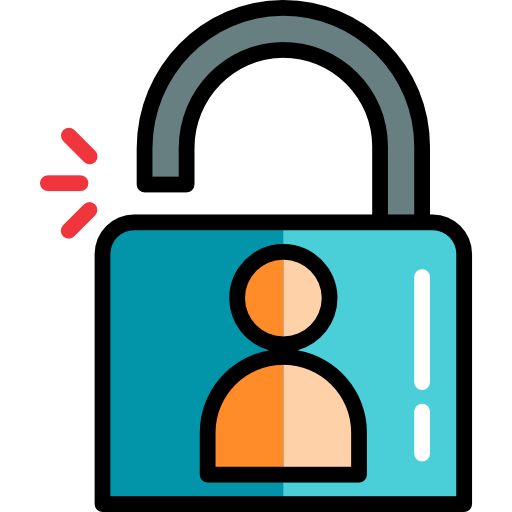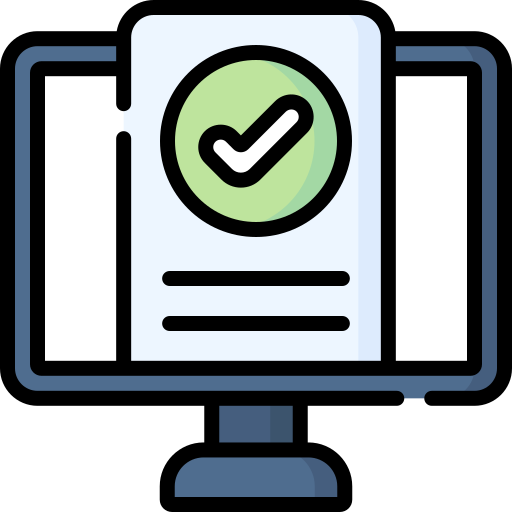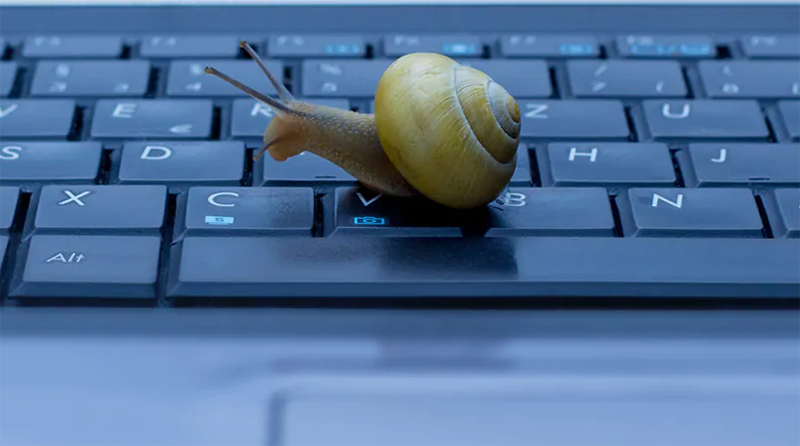Investigate the reasons for slowing down the computer and methods to increase its speed
The reasons for the slowdown and performance of a computer are complex and mysterious. A simple reason can cause your entire computer to run at speed.
It is not easy to say what slowed down the computer. Dozens of software bugs, drives, or hardware and operating system crashes can slow down a computer.
Fortunately, although we have many reasons to slow down the computer; There are a number of methods and solutions available to repair your computer. Some of these methods can find and fix the cause of the problem, and some methods can increase the performance of the computer without specifying the cause of the slowness.
How to fix computer slowdown?
The following solutions are arranged from the simplest to the most complex, and you should follow them in order from top to bottom. Sometimes closing too many tabs can speed up your computer and you no longer need to install the Windows operating system.
Jumping over a stage or solution can hide the real cause of the computer problem.

1. Restart the computer: This eliminates sudden software bugs and cases that have occurred only once and have slowed down the system. It also prepares a clean system for accurate and clear troubleshooting.
2- Close browser tabs: Do not open more than a few tabs together. Browser tabs can take up system resources, especially RAM. Because computers try to manage and process a lot of data presented through websites so that you can quickly view it when you return to a tab. Closing the tabs can cause a sudden and significant increase in RAM. Some computers release up to 4 GB or less of RAM.
3- Open the Task Manager : By pressing Ctrl + Shift + Esc at the same time and clicking on the more details option, you can get more information about the status of system resources such as CPU or RAM. Including which process or application has the most resources. To close a task, right-click on it and select End Task.
4- Turning off Power Saving mode : Look at the settings of the energy management section and the battery of the computer or laptop, and if necessary, turn off the power storage mode. Typically, computers with settings that prioritize device performance; Released but these default settings may change over time or other settings may be incorrect. This is especially true on laptops.
5 – Improving Wi-Fi signals : Sometimes the problem of slow computer may actually be slow Internet speed or slow Wi-Fi signals. You can check this with an internet speed test. Poor WiFi causes websites to load slowly, messaging services not to work, and cloud storage space to crash.
6. Search for a large download or upload on a computer : Downloading a large open file can take up a lot of RAM and CPU. Especially if it is an old computer and for example its hard disk speed is low or does not have enough space; Downloading a movie can slow down the whole system. Look for automatic download or upload of a large file and stop it.
7. Turn off unnecessary Windows visual effects : In Windows, you may have used modern effects, animations, and visual effects to beautify the background or windows and menus. But these effects can reduce system performance and slow down Windows. It is best to remove and turn off these effects for a while to get your system back to normal.
8. Enable Windows ReadyBoost : This feature can turn an external USB storage device into an internal temporary storage device; Something like increasing computer RAM. Although this method is not very effective, it is a great trick to use old USB drives to speed up the computer.
9. Free up hard disk space : Windows and other programs use free space on the hard disk to store temporary files and information so that they can be accessed and used quickly later. Hard disk that does not have enough free space; This prevents programs from interfering with the data reading process, which slows down the system.
10. Clear temporary files : In some cases, temporary files that Windows or programs use to improve their performance; They were too big and took up a lot of hard disk space.
11- Reducing or changing startup programs : If you take a look at the Windows startup section; You will notice that many programs such as antivirus, messaging services, cloud services, Windows firewall, etc. start automatically when the computer and Windows boot. These programs often run in the background and you forget when they were installed.
12- Windows Update : Usually, the new version of Windows fixes some bugs and incompatibility or performance issues. Updating Windows can cause a new hardware driver to be installed, which in turn affects system performance.
13. Install antivirus program: Malware can be hidden on Windows and run in the background to waste all system resources. One of the main reasons for the sudden slowdown of a computer can be the installation of malware without your knowledge. These malware are not easily found, for example in Task Manager, and you can only detect and eliminate them by installing a good antivirus.
14. Hard Disk Aperture : This is rarely necessary in modern PCs. For this reason, at the bottom of the list of suggested tasks to increase the speed of Windows and PC. However, it may gradually increase the speed of the system.
15. Windows Reset : With your built-in Windows tools, you can reset and reset it. This is almost as effective as reinstalling Windows. It is faster and easier than installing Windows and can fix some problems caused by incorrectly configured Windows or incomplete installation of software.
16- Installing new Windows : If you have done all the above and the problem of slow system speed has not been fixed yet; The final option, and of course with a very high percentage of effectiveness, is to install a new Windows. This process can remove all the malware, extra files, corrupt or incomplete files along with some incorrect settings in the system and free up all your hard disk space.
Is your computer still slow?
If your computer or laptop is still slow; Your computer hardware is probably too old to run modern software or is a piece of defective hardware that affects the performance of your computer. It is a good idea to take your computer or laptop to a hardware repair or warranty company, and eventually you may need to buy a new computer.













